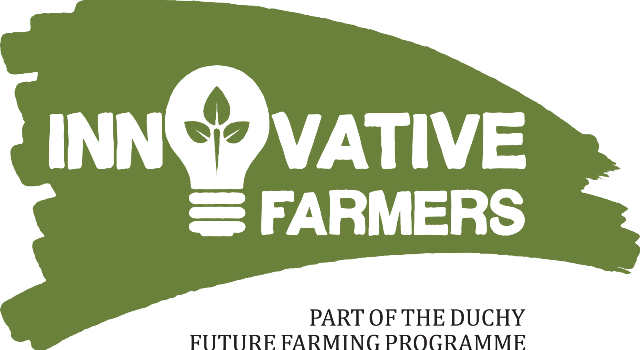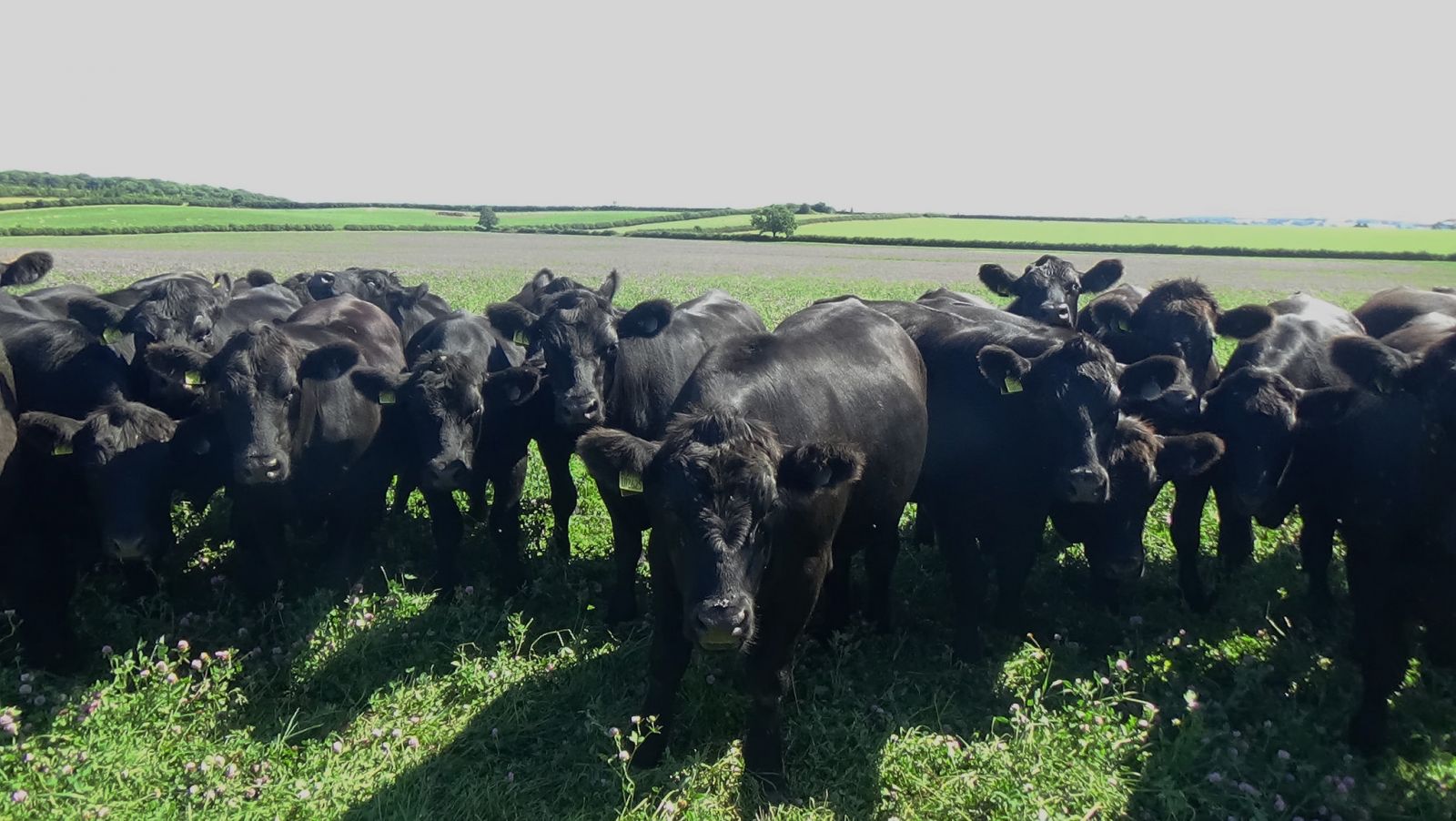Editor’s blog – Protecting our soils and wildlife
Looking back and looking forward…
Content we featured on the website during October focusing on crop rotations communicated that, with careful planning, rotations can help provide the right conditions to build soil fertility, suppress perennial weeds, and promote the all-important arbuscular mycorrhizal associations with crops; particularly through minimising fallows and ensuring that host crops are present.
Richard Smith (farm manager at Daylesford Organic Farm) talked about implementing crop rotations in his featured vlog. He touched on rotating cereal crops and grass leys, weed management within grass and clover leys, growing lupins and bean crops, and the benefits of incorporating red clover as a forage crop and for fertility building purposes. He emphasised the importance of planning crop rotations according to the types of soil on your farm.
Aberdeen Angus cattle in a red clover ley field at Daylesford. Photo credit: Rachel Lewis
Sustainability researcher Samantha Mullender talked about interesting research exploring the potential for improving nitrogen efficiency in organic rotations in her featured blog. Farmers’ experiments with using a computer-based nutrient budgeting model allowed them to gain insights into where nutrient surpluses and deficiencies occurred over the year and within the rotation cycle on their farms, and to look at the impacts of tillage practices and whether their rotations are actually helping to build soil fertility.
We also explored practical guidance to help you manage woodland on your farm in mutually beneficial ways; to help provide improved water management, shelter and woodfuel, and prevent soil erosion and lambing mortality.
A young on-farm plantation. Photo credit: Janie Caldbeck
If you are wanting to plant new trees, the best time to do it is between now and March, when the trees are dormant. You can read about this and a whole host of other valuable tips in the Woodland Trust online academies recently published in Farmers Weekly. Stuart Holm also provides some pointers in his featured blog, emphasising the importance, before starting your woodland management, of checking for nesting birds and mammals, and of not damaging other woodland plants. He also urges us to be aware of the impacts of ground disturbance on soil erosion.
During November, one of the themes we are focusing on is combating soil erosion and poor drainage. Agricology was very pleased to attend the Parliamentary Reception on the Future of Soils on October the 23rd hosted by Rebecca Pow MP, which recognised the urgent need to protect our soils.
Panel of speakers at Parliamentary Reception. Photo credit: Katie Bliss (as posted in #SustainableSoilsNow)
Katie Bliss, Agricology Project Manager, says “A room full of farmers, soil experts and politicians spoke of the crisis facing our soils and the need for an urgent call to action. We were delighted to hear the Secretary of State, Michael Gove MP share his thoughts – ‘We have encouraged a type of farming which has damaged the earth…. no country can withstand the loss of its soil and fertility…’” (#SustainableSoilsNow)
If you missed it or would like a reminder, follow the Twitter handle to see some of the discussion, or go to this page to view presentations given by speakers on the day or to provide some input and give your views on what needs to be done to improve the state of UK soils…

You will have a chance to hear about some of the innovative ways farmers are making that happen at the Agricology field day that is being put on as a fringe event to the Oxford Farming Conference and Oxford Real Farming Conference in January. It will explore particularly the role of restorative leys in different agricultural systems – looking at reintegrating leys, livestock and arable systems. Sophie Alexander of Hemsworth Farm will be on hand to talk about reintroducing livestock back into their arable system as part of the rotation. Ian Boyd of Whittington Lodge Farm will be able to provide insights into species and breed selection through his experience of using a pedigree Hereford suckler herd to manage grassland on his farm… Keep an eye out here for other speakers that are being lined up to participate during the day…
Please continue to share any thoughts / experiences / problems with the Agricology community during this month. Alongside combating soil erosion and poor drainage, we are also focusing on ways of increasing animal feed self-sufficiency. You can contact us on enquiries@agricology.co.uk or use Facebook, Instagram, Youtube, Twitter (@agricology to join in the conversation).
Janie Caldbeck is the Content Editor for Agricology
Header image photo credit: Phil Sumption




